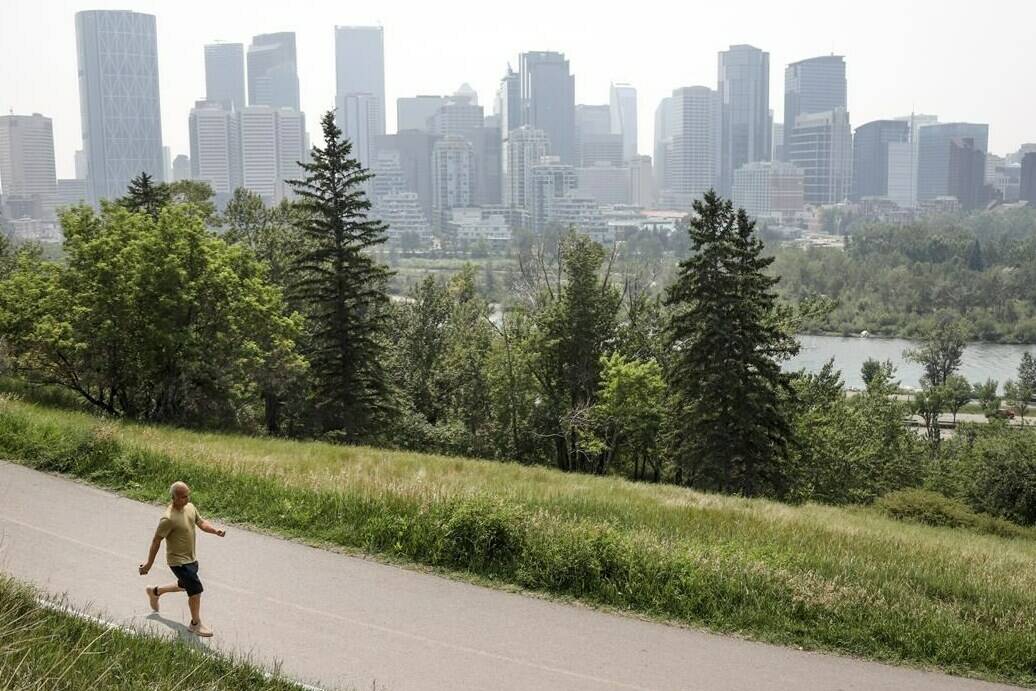Once Canada’s boomtown, the latest census from Statistics Canada suggests Wild Rose Country is becoming just another Canadian province.
For years, Alberta enjoyed population growth that towered over the rest of the country’s. Energy sector jobs and plenty of them — some offering six-figure paycheques with no university requirement — drew the young and ambitious from sea to sea to sea.
But the 2021 census shows the province has actually fallen behind the national average in growth. There are now 4,262,635 Albertans, 4.8 per cent more than in 2016. The Canadian growth rate was 5.2 per cent.
It’s quite a switch. The 2016 census showed Alberta growing at the rate of 11.6 per cent — more than double the national rate.
Ten years ago, seven of Canada’s eight fastest-growing census districts were in Alberta. This year, the situation is almost reversed — Alberta has seven of the 10 fastest-shrinking municipalities in the country.
For the first time in over 25 years, Calgary isn’t among Canada’s five fastest-growing cities.
Still, don’t look for tumbleweeds blowing down the main streets of Wild Rose Country just yet. Analysts say Alberta is shifting to an economy that looks a lot more like the rest of Canada’s, maybe even a little stronger.
“The source of growth and opportunity going forward will be very similar to what you seen in other economies,” said Trevor Tombe, a University of Calgary economist.
“The growth will be driven by services and increasingly tech. Alberta’s economy is stronger than others, even though the pattern of its growth will approach what we see elsewhere.”
Ten years ago, billions of dollars a year were pouring in to the province’s energy industry, especially the oilsands. Those mines and processing plants are now built.
“I don’t think we have any prospect for those kind of unusual growth rates because they were driven in large part by investment in these incredibly expensive large oilsands facilities,” said Tombe. “Most of that past growth was tied to investment flows that are very, very unlikely to return.”
Oil production reached an all-time record last year. But jobs in the sector haven’t entirely recovered and remain below their 2019 peak.
Albertans are adapting, said Brad Perry of Calgary’s economic development office. In 2019, his organization began offering a seven-month program for oil and gas professionals to take their skills and learn how to use them in other sectors such as finance, clean energy or agriculture.
Its first year saw 1,100 applications for 100 spots. About 70 per cent of its graduates got jobs in their new fields. This year, the Energy to Digital Growth Education and Upskilling Project has filled all of its 320 spaces.
“It’s akin to your stock portfolio,” Perry said. “Maybe we’ve over-indexed (in energy) a little bit and we need to let some of these other sectors start to get a little bit of sunshine.”
“It takes a lot of courage for somebody who has that kind of experience to step out of their comfort zone and really dive in.”
Statistics Canada has noted an outflow of young people from the Alberta in recent years.
But the province’s affordable housing market is expected to help attract and keep young people. Although prices have risen, they’re nowhere near the 25-per-cent growth seen in some Ontario and British Columbia markets.
A recent study from the mortgage brokerage Edison Financial found Edmonton and Calgary had the second- and third-highest rates in the Canada of home ownership among people aged 20-39.
“Millennials are finding it very favourable to put in roots in the Edmonton area and start families and making this their home because it’s more affordable than other places,” said Paul Gravelle of the Realtors Association of Edmonton. “I think it’s a pretty big factor.”
Even in its darkest economic days, said Tombe, Alberta still had Canada’s strongest economy. Don’t look for that to change.
“Alberta’s economy is stronger than others, even though the pattern of its growth will approach what we see elsewhere. The growth rates will be slower than we’ve historically seen.
“(But) over the long term, Alberta remains poised to be the growth leader in Canada.”
—Bob Weber, The Canadian Press
RELATED: B.C. population tops 5M in 2021, province grows by 7.6% since 2016

